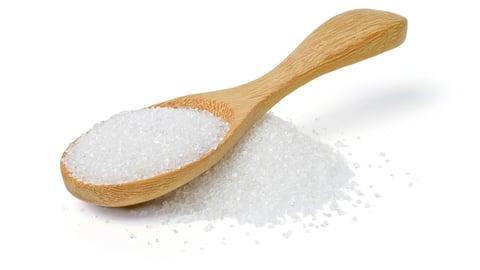Post-COVID, consumers are taking a more proactive approach to their health
If there was one silver lining to emerge from the pandemic period, it was the decrease in colds and flus thanks to a sharp decline in in-person interactions. And now that the world has (mostly) returned to normal, there has been a significant shift in consumer focus from reactively treating cold and flu symptoms, to proactively preventing them by building or boosting immunity.
With some health experts bracing for another so-called “tripledemic” of COVID-19, RSV and influenza this cold and flu season, grocers could find themselves on the frontlines of preventative care, as consumers look to everything from vitamins and supplements to their food choices to enhance immunity.
“Consumers are still focused on immunity post-COVID, and they’ve gotten more specific about how they are addressing immunity with specific food ingredients and vitamins, says Shelley Balanko, senior vice-president of the U.S. research firm The Hartman Group.
READ: Canadians are putting their personal health and wellness needs at the forefront
To be clear, the main consumer focus when it comes to boosting immunity resides primarily with vitamins and supplements. According to The Hartman Group’s research, vitamins and supplements are increasingly part of consumers’ “toolkits,” with more than two-thirds of respondents (68%) saying they play an important role in their health and wellness.
But the products consumers are using to achieve their health goals are shifting, with The Hartman Group noting a 12% drop in the number of people who have used multivitamins in the past year, offset by pronounced growth in specialized vitamins and minerals such as vitamin D (+10%), vitamin C (+7%) and the vitamin B series (+8%).
Paul Galbraith, senior vice-president, managing director with Jamieson Wellness, says nearly 75% of Canadian households have purchased vitamins, minerals and supplements in the past year.
“Seasonal trends, like a focus on immunity during cold and flu season, have returned with high demand for innovative product,” says Galbraith. Jamieson is attempting to meet those consumer demands with an array of products including its Vitamin C + Immune Shield Gummies, and its high-potency D3 Softgels.
But, while immunity has emerged as a key sales driver in the category, Galbraith says other factors are playing into the category’s growth as well. “Immunity is important to consumers, but overall health and wellness, including sleep, stress and mental well-being are also driving product popularity,” he says.
According to Statista, revenue in the Canadian vitamins and minerals market amounts to $1.52B in 2023 and is expected to grow annually by 5.54% (CAGR 2023- 2028). And while grocery represents just one of many sales channels – along with specialty retailers and major online retailers including Amazon – experts say there’s potential for it to become a significant player in the fast-growing segment, particularly as consumers place greater emphasis on healthy eating as a way of boosting immunity.
READ: As more consumers prioritize health and wellness, grocers step up their offerings
In a recent survey of 2,000 Canadians, as part of its research into better-for-you eating trends, Mintel found health considerations ranked third behind lowest price and preferred taste – and ahead of brand preference, all-natural ingredients and ethical considerations – when it comes to what matters most when shopping for food and drinks.
Joel Gregoire, Mintel’s associate director of food and drink, says there’s an opportunity here for grocers to guide consumers to be healthier.
According to Gregoire, more than one-third of respondents cited immunity-boosting ingredients as an attribute they’d like to see in better-for-you foods. “When people think about health, the first things they think about are energy or cardiovascular … but immunity is something that resonates with consumers,” he says.
READ: The power of on-package labels
Not surprisingly, food brands are beginning to move into the immunity space. Nestlé’s new Life Cuisine brand of frozen power bowls, for instance, features can’t-miss messaging on its packaging that promises “immune support” through antioxidants and vitamins.
“Usually when you think about immunity you might think about tea or beverages or supplements, but this puts immunity front and centre on the package,” says Gregoire. “Why I find this product interesting is because it’s from the biggest food company in the world; it’s a very mainstream product, and it’s not [a claim] that they buried in the copy – they lead with it.”
Health positioning, says Gregoire, can be a “tiebreaker” for consumers when deciding between brands, with 80% of people indicating that when choosing between similar products, they’re more likely to purchase what they perceive as the “healthier” option.
This article first appeared in Canadian Grocer’s November 2023 issue.



